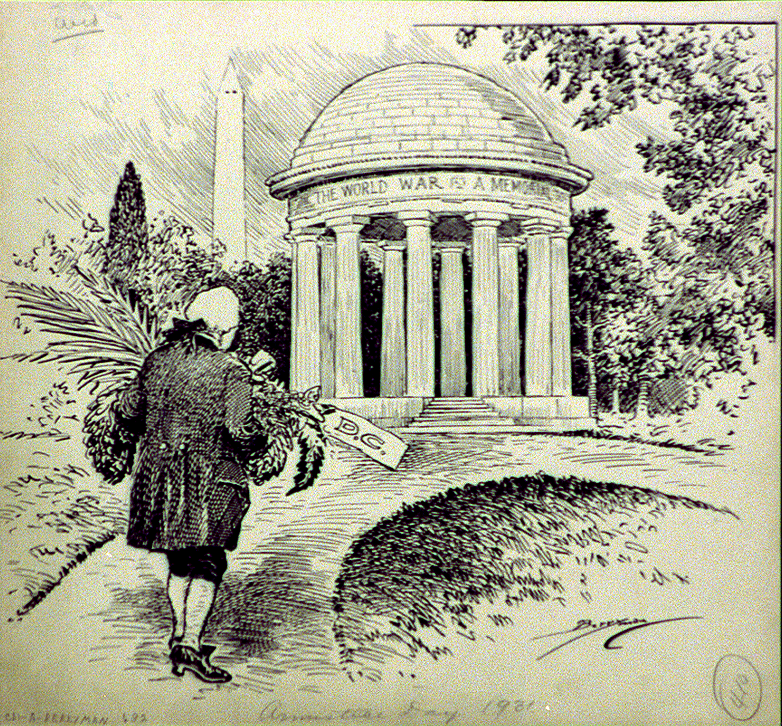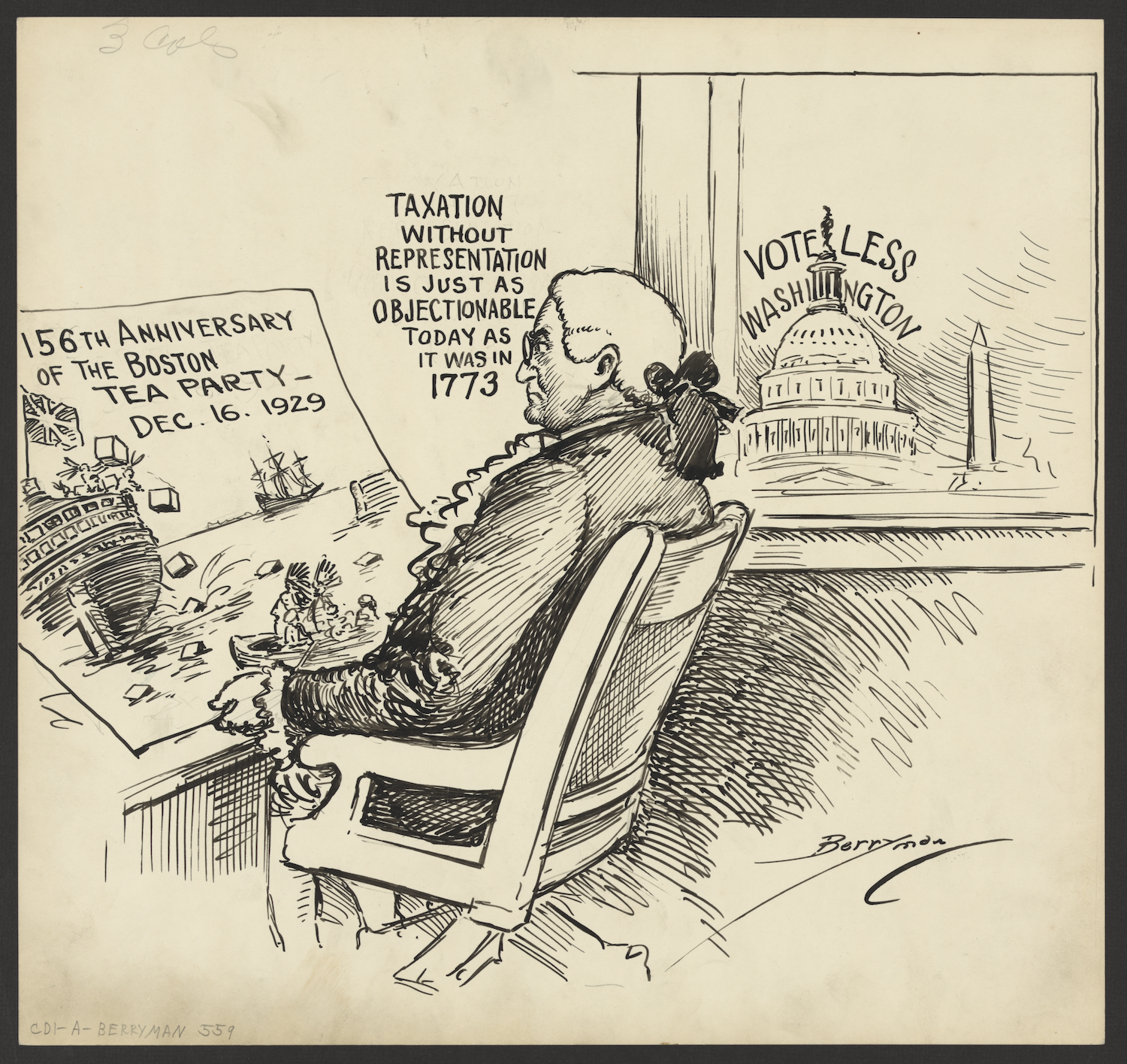“As long as District citizens are denied the basic rights to vote and to govern themselves, they will remain less than full citizens and will be less effective in assuming their proper share of responsibility for District problems. I urge strongly that the Congress enact Home Rule legislation at this session.”
“Last October I called to the attention of Congress one of the truly unacceptable facts of American life and asked for the enactment of legislation I had proposed which would bring about the orderly transfer of political power to the people of the District of Columbia. I called for a Constitutional amendment giving the District at least one representative in the House and such additional representatives as Congress may approve providing for the possibility of two United States Senators. We need to keep continually in mind that the population of the District is greater than that of at least ten States. I asked for an interim arrangement providing the District with a non-voting Congressional representative, and the creation of a Commission on Government for the District of Columbia to propose a permanent governmental arrangement. I have been heartened by progress toward the non-voting representative, but I share the chagrin that most Americans feel at the fact that Congress continues to deny self-government to the nation’s capital. I would remind the Congress that the founding fathers did nothing of the sort. Home rule was taken from the District only after more than seventy years of self-government, and this was done on grounds that were either factually shaky or morally doubtful. Surely, we cannot allow this inadmissible situation to persist as the American Bicentennial dawns.”
“Today it was made public — the International Commission on Human Rights and the Organization of American States said that the United States was in violation of international law. It said that, “No other federal state in the Western Hemisphere denies the residents of their federal capital the right to vote for representatives in the national legislature.” It also went on to say that, “The U.S. had violated provisions of the American Declaration, the Rights and Duties of Man, on which the United States is a signer.” The President has steadfastly been for democracy in Iraq, but not democracy for the residents of the District of Columbia. Has he changed his position on that?”
POLITICAL CARTOONS
Letter to the Speaker Urging considering of the D.C. Home Rule Bill by the House of Representatives.
President Lyndon Johnson
August 4, 1965
On the signing of the D.C. Home Rule Petition by Majority of House Members.
President Lyndon Johnson
September 3, 1965
For much too long this nation has tolerated in the District of Columbia conditions that our ancestors fought a revolution to eliminate. For much too long we have imposed on many hundreds of thousands of citizens who live in the District a badge of inferiority--the stigma of unworthiness to guide their own affairs. For much too long we have denied at our nation's capital the principles of representative government for which we stand throughout the world. The Congress has been aroused to redress denials of the right to vote in every part of this country--except the District. We affront its citizens and leave a significant part of our work unfinished by this unnecessary and invidious discrimination. All of us cherish the heritage of our great charters of liberty. Yet in the District, with a population larger than that of eleven of our States, the governed have no voice and taxation is without representation. This is no less than a national disgrace. The bill passed by the Senate will redeem our long neglect. It is not a partisan measure, nor should it be. Democrats and Republicans alike honor traditions of democracy and self-government.
Today the last major Federal territory on this American Continent has taken a decisive step toward full membership in the American Union. A majority of the House of Representatives has signed a petition requiring consideration of home rule for the District of Columbia. Thus, we near victory in the final battle of the American Revolution--a revolution that was fought so that men might govern themselves. A majority of the Members of both parties in the Senate have this year approved self-government for the District--as the Senate had five times before. But until today a small group of men in the House of Representatives have kept the Congress from exercising its will. Now the House of Representatives is going to vote. And I am confident that the House will affirm the right to democracy for the almost 1 million citizens of the Capital City. In so doing, they will redeem a pledge that is older than the Nation itself. It was in 1783 that the Continental Congress pledged that the future seat of government-- the capital of a nation yet unborn-would govern itself. In obedience to this promise, James Madison wrote--in the Federalist Papers--that under the new Constitution citizens of the District would elect their own representatives and would frame their own laws. Now for almost two centuries history and circumstance, indifference and hostility, have conspired to deny this historic pledge. But now the time of fulfillment is at hand. This is not a revolutionary bill. It does not make fundamental and far-reaching changes in the structure of the Nation. It simply extends the most elementary rights of democracy to almost a million of our fellow Americans--the right to choose their own leaders, frame their own laws, and manage their own affairs. It is a right which those in every State and community have long assumed, and cherished, and fought to keep. Now that same mantle of democracy will cover the entire land.
A special message from the Congress about the District of Columbia.
President Richard Nixon
April 7, 1971
I am putting forward in this message today is to give Washingtonians, as American citizens, and Washington, as the Nation's capital, the very best in the performance of the responsibilities of government--as they deserve. Let the New American Revolution which we seek for all Americans begin here, in the Nation's Capital--and now, in 1971. If we are to bring the New American Revolution to the people of Washington, we must start by securing for them the benefits of the original American Revolution, in which they still do not fully share. The fundamental rights for which George Washington's armies fought--men's rights to be represented in the legislature that taxes them and to hold consent over the government that rules them--can no longer be denied to the city that bears Washington's name. The bicentennial of American independence, now only five years away, is a natural focal point for our hopes and plans of what the Nation and the Nation's Capital can become. Many cities will take part in this great observance as we celebrate our heritage and map our third century that lies ahead. Boston as the cradle of liberty, and Philadelphia as the scene of the bold political strokes leading to independence and union, will both play leading roles. But Washington, truly the child of the American Revolution, will have an especially exciting chance to show the world how that child has come to full maturity. Charles Dickens, visiting the United States in 1842, took issue with the Portuguese diplomat's characterization of Washington. It should be called, he said, the city of magnificent intentions. His novelist's eye missed no detail of the bustling human life of the Capital, and the whole scene suggested to him visions and dreams--social and political as well as architectural--unfulfilled, still striven for. Dickens' insight remains pointed and valid today. For it is clear that Washington's role as we enter America's third century must be not only that of a political and ceremonial capital, but also that of a living city--a city alive in its own right with three-quarters of a million Americans, the life-center of all these United States.

